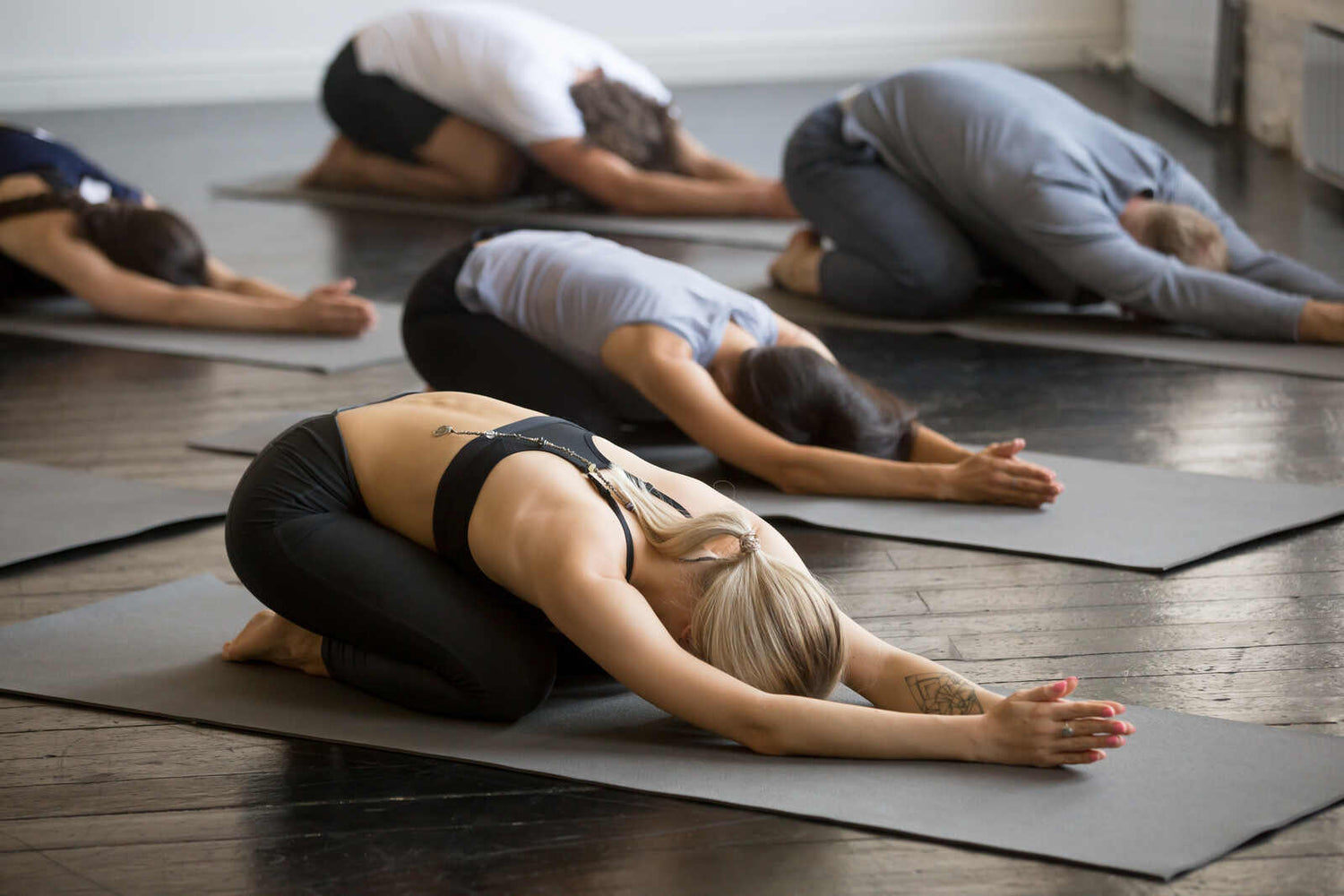Society can place a lot of emphasis on our physical fitness. From advertisements about leaner eating, calorie counter apps, and diet programs, we might feel overwhelmed. Whether you are trying to get healthier for the first time, have fallen off the track, or want to get back on, there are many forms of exercise. Running may be one of our favorite workouts, but we must admit that not everyone has the time or physical ability for running or other forms of exercise.
One form of exercise that might get overlooked frequently is yoga. Yoga may not seem as intensive as weight-lifting, running, HIIT, or Spin classes, to name a few, but it can be and is often just as or even more beneficial.
There are so many different forms of yoga available to try that there will undoubtedly be an ideal routine that can fit into any lifestyle and accommodate any body type or fitness level. Additionally, if you're already a runner but haven't added yoga to your workout routine? There are benefits to doing so!
Let's consider the great reasons to consider adding yoga to your fitness program.
What is Yoga?
Yoga is a Hindu spiritual, ascetic discipline that focuses on breath control, simple meditation, and the adoption of specific bodily postures. It is widely practiced worldwide for mental and physical health and relaxation. Western yoga has evolved to adapt to our modern lifestyles yet retains the healing benefits.
Yoga builds strength, awareness, and harmony between your mind and body. There are more than one hundred different types of yoga, known as schools of yoga. Most sessions include breathing exercises, meditations, and attempts at different postures, often called either asana or pose, that stretch and flex various muscle groups using your body's weight.
Because of yoga's massive versatility, anyone can begin learning. Whether you're a self-tilted couch potato, live with limited mobility, or are a professional athlete doesn't matter.
Flexibility
It is a common fear for many that they may not be flexible enough to start yoga. The great thing about yoga is that it doesn't matter what your beginning flexibility is: the more you practice, the easier it will be. Consistent practice is critical. Yoga and a good instructor, whether watching them online or attending class, will tell you that if it hurts, stop and often will teach you how to adjust your pose to accommodate you and your body.
Yoga and the stretching you can do will increase your flexibility and mobility in time. You don't have to move the same way experienced yogis do.
Not only is yoga wonderful for increased flexibility, but practicing yoga can impact your entire fitness routine. Yoga's flexibility can open new doors for you, such as completing exercises you couldn't or have tried before while keeping your muscles supple.
If you're already a runner, yoga can help your connective tissue become looser, as this tissue plays a critical role in your joints, ligaments, and tendons.
Boost Mental Health
As a relatively low-impact exercise, research shows that yoga can lower stress hormones while increasing beneficial brain chemicals like endorphins and GABA (gamma-aminobutyric acid), feel-good chemicals that help decrease anxiety and improve mood.
With regular practice, scientists believe yoga may help slow the natural aging process—especially in the brain areas that may shrink as we age, which process information and store memories. Making yoga part of your routine may help protect against the effects of aging on our memory and cognition.
Scientists compared brain imaging and chemical measurements between people who do yoga for at least 45 minutes to those who practice more passive forms of relaxation like listening to music and reading. They found the levels of good brain chemicals much higher in those who practiced yoga. (1)
Improve Sleep
Have you ever tried to get a good night's sleep on a bad day or during a stressful period? You likely found yourself struggling to get enough rest. Yoga can help with your sleeping patterns by assisting your mind and body in settling down to relax. When your body relaxes, your minds tend to let go of tension and anxiety, which in turn helps us sleep better and more peacefully.
- Yoga teaches us and helps improve our mindfulness which can increase melatonin levels, reducing sleep interruptions.
- Deep breathing techniques can assist us in relaxing and inducing sleep.
- Yoga with meditation can help de-stress.
- Yoga relaxes our nervous system.
- A successful yoga session, no matter what that may look like, can help us feel better, boosting mood and a relaxing effect.
Posture and Balance Improvements
It can be difficult to avoid working long hours in front of a computer or sitting at a desk. Many of us also find ourselves bent over our phones too. Bad posture can lead to muscle aches, cramps, and pain, especially in our necks, shoulders, and lower back.
With practice, yoga can teach us bodily awareness through poses. With each pose, an instructor should ask you to focus on the physical aspects, listening to your body, and being aware of the position, function, and movement you are doing. Yoga emphasizes alignment correction of hands, wrists, arms, and shoulders. This sense of alignment helps you improve posture and get into the habit of ideal body alignment.
Yoga for Pain Relief
Before attempting yoga for pain relief, it's important to note that it may not be appropriate for specific injuries. Generally, gentle yoga can help with a chronic injury. However, if your injury is acute and severe, you must allow it to heal with rest before beginning a yoga routine. If in doubt, always ask your health provider for advice.
- Some studies suggest that for those that suffer chronic pain due to inflammation, especially from autoimmune disorders, that yoga can help reduce inflammation by decreasing the body's stress response.
- Being in chronic pain can make it seem impossible to stay active, resulting in reduced flexibility and limited range of motion. Yoga can provide short-term improvements in functional disability among those experiencing chronic lower back pain.
- Science believes there is evidence showing Yoga can help lower pain with fibromyalgia, back pain, neck pain, and headaches.
- Remember these essential tips:
- Never push yourself further than what feels comfortable to you.
- If you feel any pain, pinching, or other sensations related to pain, slowly come out of any pose. Yoga should never be painful!
Yoga is a fantastic exercise for everyone, regardless of mobility or fitness level. Adding yoga to your routine can help boost your body and mind. As with any activity, it's always important to talk to your healthcare provider before starting to ensure it compliments you, but don't discount this incredible workout!
Sources:
1. https://www.ncbi.nlm.nih.gov/pmc/articles/PMC8341166/#R30







Leave a comment
This site is protected by hCaptcha and the hCaptcha Privacy Policy and Terms of Service apply.